198 CD / Erich Wolfgang Korngold: String sextet op. 10, Piano quintet op. 15
Description
The Piano Quintet, Op. 15 in combination with the better-known String Sextet , Op. 10 of Erich Wolfgang Korngold is not only directed towards the friends of chamber music for larger ensembles. Korngold writes in an individual and concentrated language. The camerata freden works out his often unusual, densely packed ideas with precision and verve.
Mit dieser Einspielung macht der Musikliebhaber eine tolle Entdeckung (NDR Kultur Klassik)
10 reviews for 198 CD / Erich Wolfgang Korngold: String sextet op. 10, Piano quintet op. 15
You must be logged in to post a review.

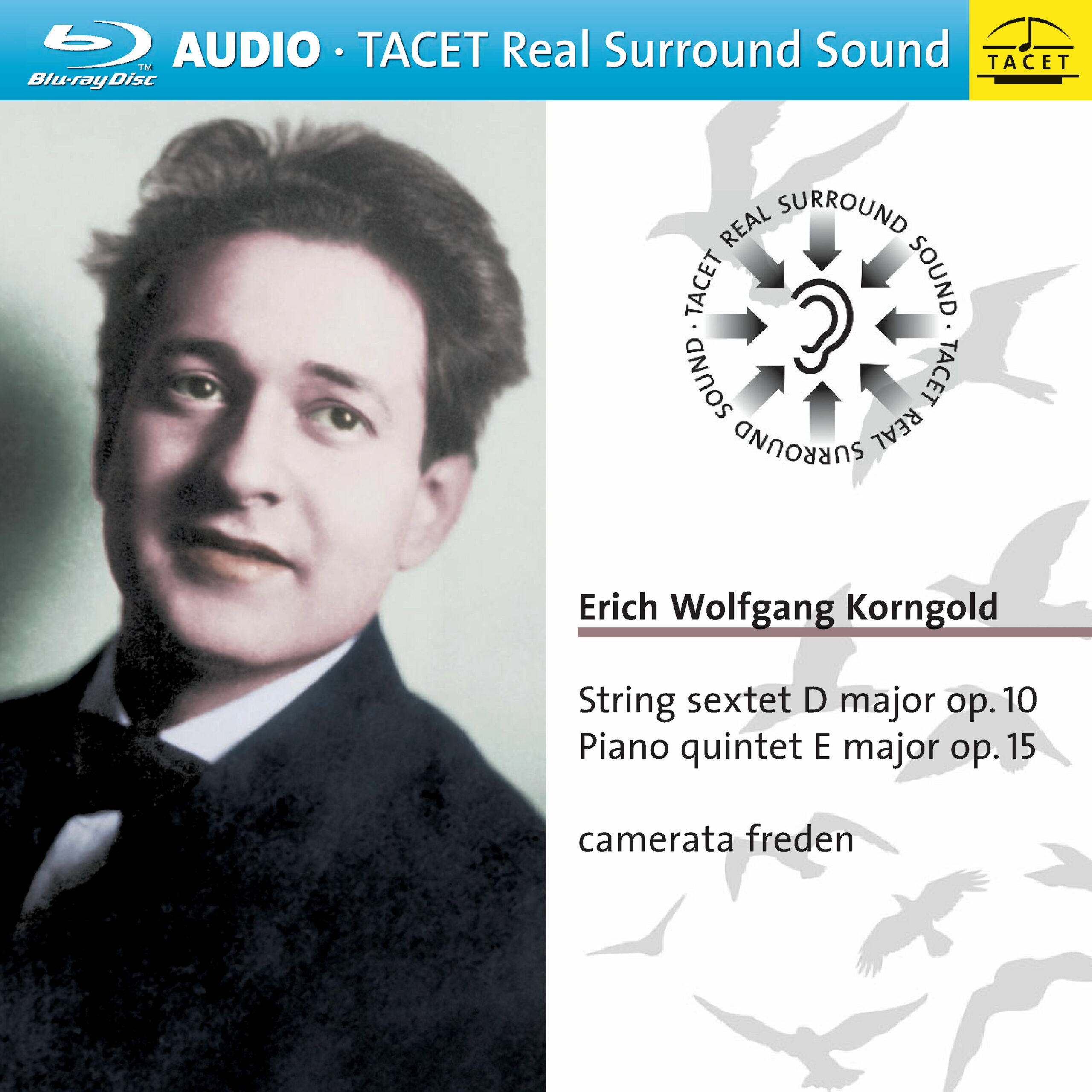
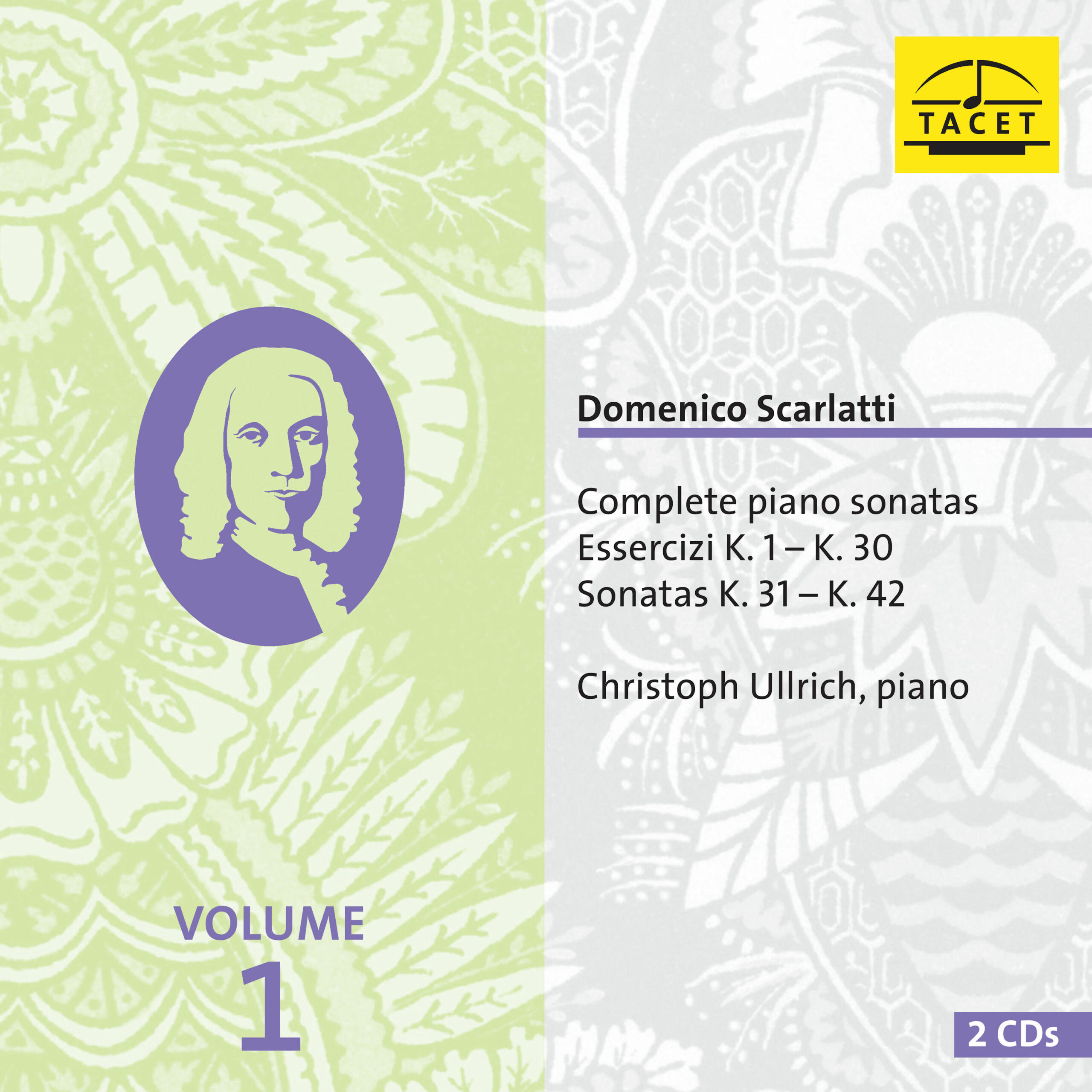
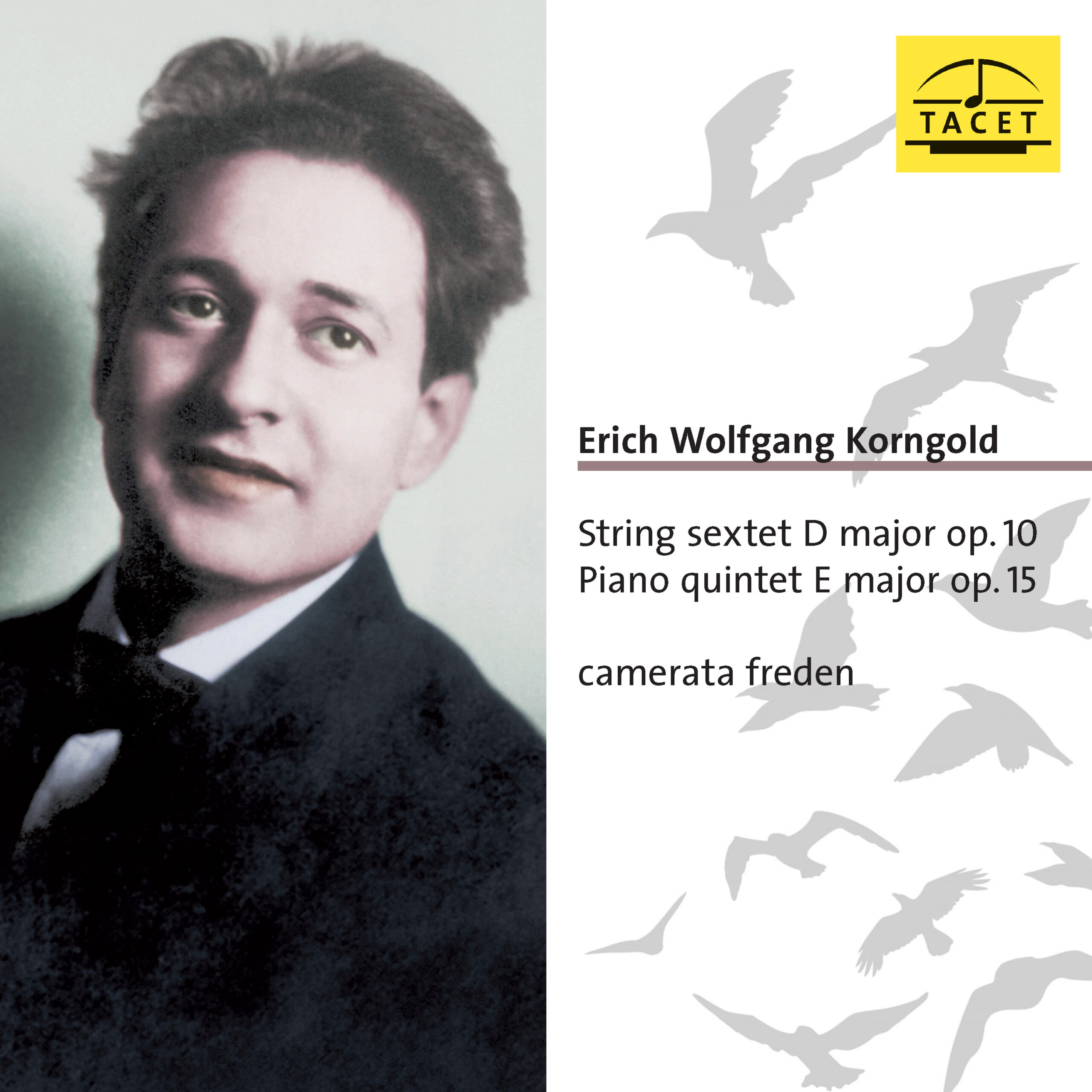
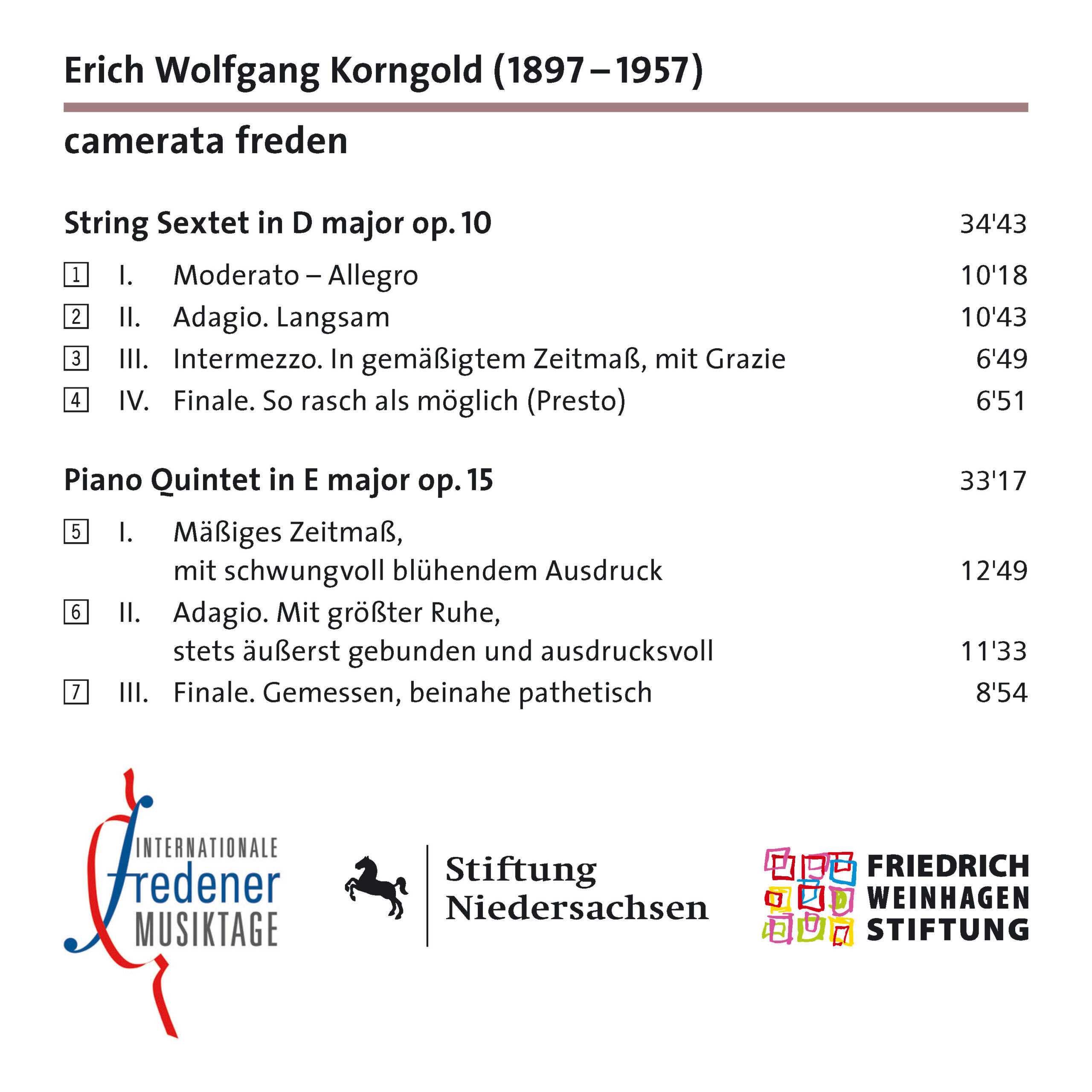

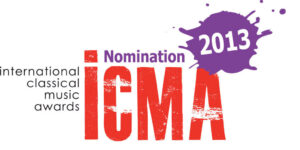

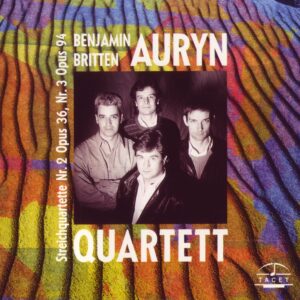
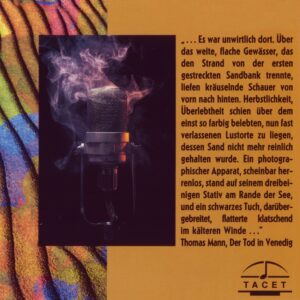
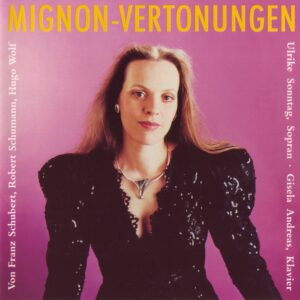
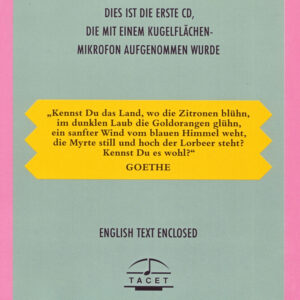
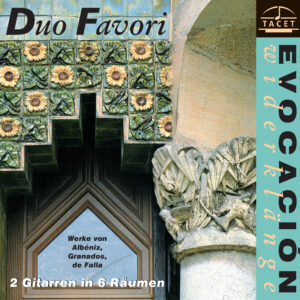
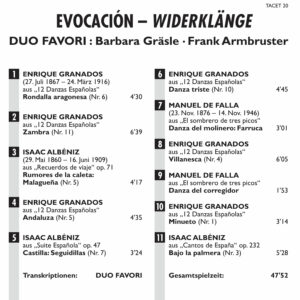
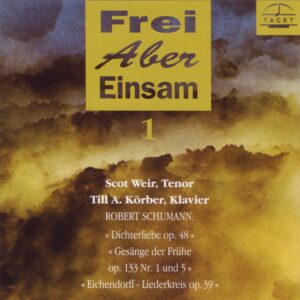
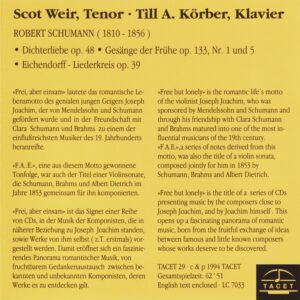
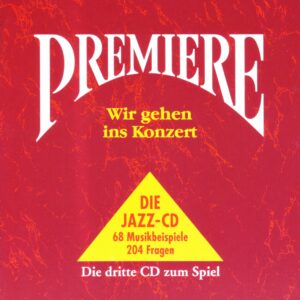
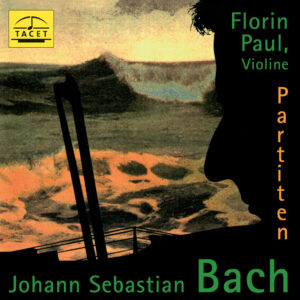
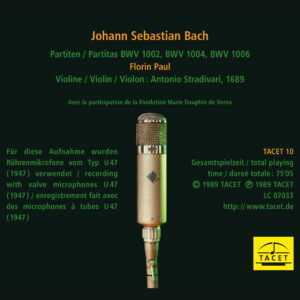
Cinemusical – Reviewing great classical and film music –
--> original review
(...) The performances here are quite exceptional with beautiful playing and phrasing that captures the essence of these pieces. The tendency to try and make Korngold’s early music sound lush like his later Hollywood pieces can often destroy the intimacy of these chamber works. Here, the flashes of ultra-romantic ideas flow sensitively out of the more atonal-sounding material creating dramatic performances. The crispness of the recording allows individual lines to be captured rather cleanly and the results are quite engaging. While other recordings of these works are often equally captivating, this is certainly a disc worth seeking out for fans of chamber music performance and Korngold.
Steven A. Kennedy
Ensemble 05/12 –
(...) An altogether important recording of a repertoire that is played too little.
Carsten Dürer
klassik.com –
--> original review
Mit Überschwang
Korngold's String Sextet and Piano Quintet in a recording by the camerata freden - a stroke of luck!s
Musik & Theater –
Genialisch gut
Still, there are little-known chamber music treasures that, at the time of their creation, either fell out of the mainstream or were pushed to the repertoire's edge for some reason. These compositions seem to be waiting for the right time and the appropriate ensemble to rediscover them, breathing life into the pieces as if by magic.
For Korngold's early and truly ingenious chamber music, this moment has arrived. And with the breathtakingly well-performing Camerata Freden, the right ensemble has stepped forward to make the reawakening of these king's works, fallen into a hundred-year slumber behind a thorn hedge, a discographic event of magical poetry. It is nearly impossible not to listen to how the six musicians, with enchanting sonic sensitivity, approach the sextet of the 19-year-old Korngold. The wonderfully floating, light, open-air and yet so sophisticated nature of this work is staged with precision and pastel colors that leave one astonished.
The livelier and more distinctive Piano Quintet from 1921/22 also receives an ideal interpretation, not least because the pianist Thomas Hell integrates seamlessly into the group of string players.
Chamber music is rarely celebrated with more inspiration, intensity, and commitment.
Burkhard Schäfer, Musik und Theater
Fono Forum –
Korngolds späte Instrumentalmusik nutzt durchweg seine Filmmusik für Hollywood; seine frühe Kammermusik hingegen hängt vielfältig mit seinen zur gleichen Zeit komponierten Opern zusammen, ohne doch aus ihnen zu zitieren. So steht das Streichsextett op. 10 (1916/1917) in einem engen Zusammenhang mit seinen beiden Operneinaktern „Der Ring des Polykrates“ sowie „Violanta“. Und das Klavierquintett op. 15 (1923) gehört in den musikalischen Kontext seiner Oper „Die tote Stadt“.
Solche Kontexte können die ungewöhnlichen Züge erklären helfen, welche diese Kammermusik besitzt, etwa den Tonfall, der unverkennbar opernhaft wirkt, den leichteren musikalischen Habitus, der so gar nicht zu rigider Kammermusik zu passen scheint, oder auch die Konzeption und Anlage eines Satzes geradezu als „Szene“.
Die interpretatorischen Fallstricke, die solche Musik bietet, die zudem auch noch mit einer jugendstilartigen Musikfülle wuchert, sind beträchtlich: Eine nüchtern-sachliche Interpretation, die sich stur an das Notierte hält, verfehlt die faszinierende Ambivalenz dieser Werke, eine pointierende hingegen gerät leicht kitschig-pomphaft. Die Camerata Freden aus Freden an der Leine, einem Städtchen im Süden von Hildesheim, windet sich souverän mit sicherer Musikalität an diesen Fallstricken vorbei: durch spieltechnische Gediegenheit, mit der sich vor allem auch zwanglos-unverkrampft ein gelöstes, gewissermaßen „natürliches“ Musikmachen mitteilt. Hier wird nicht Musik interpretatorisch beladen oder in Form gebracht; vielmehr scheint umgekehrt die facettenreiche Musik ein ebenso differenziertes Musizieren in Gang zu setzen, das auf Anhieb gänzlich überzeugt und dieser Musik zu einer eindringlichen Präsenz verhilft.
Giselher Schubert, Fono Forum
Preis der deutschen Schallplattenkritik, Bestenliste 04/2012 –
These two late romantic chamber works, composed at the age of nineteen and twenty-four respectively, bear witness to the early mastery of the young Korngold. By virtue of the delicacy of their compositional technique, the elegance of their polyphonic voice-leading and the downright magical lightness of their melodic invention, they urgently need to be discovered as repertoire pieces. The Camerata Freden from the International Freden Music Days has now taken a first step towards attaining this goal with this fabulously well-balanced, energetic and precisely performed reference recording.
(Für die Jury: Eleonore Büning)
Pizzicato –
Die Internationalen Fredener Musiktage sind auch bei uns bekannt, und sei es nur durch die Tatsache, dass deren Begründer, Utz Köster, Bratschist im OPL und Adrian Adlam, der künstlerische Leiter des Festivals, auch hier eine beachtete Musikerpersönlichkeit ist. Die Musiktage zeichnen sich durch die Qualität und Originalität der aufgeführten Werke aus. Es darf daher nicht Wunder nehmen, dass Erich Wolfgang Korngold, dessen unwiderstehliche Renaissance immer offensichtlicher wird, nun ebenfalls in der Programmierung der Fredener Musiktage aufgetaucht ist. Und so hat denn das Hausensemble, die „camerata freden“, mit Adlam als erstem Geiger, 2011 das komplexe und umso faszinierendere Streichsextett op. 10 und das wohl schönste Kammermusikwerk des Komponisten, sein Klavierquintett op. 15, für das Label TACET eingespielt.
Noch vor wenigen Jahren hätte diese Produktion Ausnahmecharakter gehabt, inzwischen aber sind mehrere Aufnahmen der beiden Werke erschienen, unter denen die des Doric Quartetts durch ihre Homogenität hervorsticht. Doch auch bei der „camerata freden“ ist diese eindringlich, und das Spiel der ausgezeichneten Musiker reißt den Zuhörer sofort mit. Dies ist natürlich zuerst ein Verdienst der Musik, aber was wären die größten Kompositionen, wenn ihre Interpretationen nicht ihrer Größe entsprächen?
Im tollkühnen Sextett von 1914-1916 macht die „camerata freden“ deutlich, wie viel Neues und Originelles in der Komposition verborgen ist. Den Notentext akkurat und engagiert zu spielen aber ist das eine, die Intensität und den Reichtum der Musik bloßzulegen, das andere. Dies machen die Fredener Musiker mit konstanter Begeisterung. Faszinierend ist, wie geschickt sie aufeinander hören und ihr gemeinsames Wissen um den Reichtum und die Komplexität der Musik mit Verve zu Gehör bringen. Das wird im Besonderen deutlich in der Darbietung des dreisätzigen Klavierquintetts op. 15 von 1920-21. In dieser Komposition greift Korngold auf eines seiner wesentlichen Schaffensprinzipien zurück. Im Adagio übernimmt er die Thematik des Liedes „Mond so gehst du wieder auf“ aus den kurz zuvor entstandenen „Abschiedsliedern“ op. 14 und macht daraus eine verschlüsselte Liebesbotschaft an Luzi von Sonnenthal, die er 1923 heiraten wird. Korngold hat dem Satz den Zusatz gegeben: „Mit größter Ruhe, stets äußerst gebunden und ausdrucksvoll“, und genauso wird er hier gespielt. Er allein schon macht diese CD nicht nur für Korngold-Freunde unumgänglich.
GW, Pizzicato
Klassik heute –
Upon the initial run-through of the present program, I couldn't help but think of Ernst Toch's sarcastic observation that Erich Wolfgang Korngold had always been composing for Warner Bros., but was not initially aware of it. Once again, despite my fundamental sympathy for the wonder boy from Vienna and Hollywood – I hold his Wittgenstein Piano Concerto and, above all, his Symphony in F# in high regard – I faced the specific problem that the majority of his works pose for me: there is often too much of everything. Indeed, Erich Wolfgang, the son of the feared Dr. Julius Korngold, seems like someone who, due to his immense talent and easy hand, practically got away with everything, and whose skills therefore often grew wildly. For example, in the Sextet for Strings, Op. 10, recorded here, which he composed when he was not yet twenty: The Allegro is written with the greatest delight in storytelling, in polyphonic braiding patterns, in ever-evading, and consequently, nose-turning harmonies, and for those who have to play it, it is undoubtedly a real joy. After five or six minutes, however, one gets the gist of it, and then he only begins the development. In the Adagio, I sense intended intimacy that looks with wide eyes towards the blessed Gustav Mahler without encountering the personality itself, and in the Ländler deconstruction of the Intermezzo, I perceive the faint smile of an Augustin, for whom not everything is necessarily lost – I experience ups and downs between the highest interest and deepest distraction. At times, I hear unmistakable heralds of the Symphony (down to motivic turns), at other times, late stage attempts like The Silent Serenade pass by in a soft, irreverent manner. No matter how delicately and passionately the six musicians of the camerata freden present themselves, the architectural concerns cannot be eradicated from the musical world despite all the fine work.
In the Quintet, Op. 15, composed in the early 1920s, a juicy, massive piano part is added, and the same considerations as before apply, with corresponding modifications. Nevertheless, in this piece, which is endowed with an even more expansive first movement, a hardly less broad Adagio, and a "almost pathetically" taken Finale, a peculiarly ironic note spreads, which would have to be investigated with the help of the score. That Korngold, as the cogent introductory text reveals, varies a song from his Opus 14 in the middle movement, is less significant than, for example, the casually thrown-out motif towards the end of the Finale, in which Emil Nikolaus von Reznicek's Donna Diana seemingly "unmotivatedly" drops by: "The party is over, love triumphs," it says at the end of the opera to the same melody that became world-famous through the overture and Second German Television. Joke, satire, irony, or deeper meaning? Someone who later in The Sea Hawk marks the knockout of a galley guard with a cheeky, discreet "pling" would be entirely capable of that.
Rasmus van Rijn, Klassik heute
Südwest Presse –
Korngold, kongenial (–> Original-Artikel)
Der Name Erich Wolfgang Korngold ist vielen Klassik-Hörern allenfalls im Zusammenhang mit seiner Oper „Die tote Stadt“ (1920) und seinen im US-amerikanischen Exil entstandenen Filmmusiken ein Begriff. Dass der 1897 in Brünn geborene und 1957 in Los Angeles gestorbene Künstler jüdischer Abstammung ein begnadeter Komponist substanzieller Kammermusik war, offenbart diese beim Stuttgarter Label „Tacet Musikproduktion“ erschienene CD aufs Schönste. Zu hören sind das ungemein raffinierte, duftend-schwebende Streichsextett D-Dur op. 10 – ein reifes Frühwerk des 19-Jährigen – und das Klavierquintett E-Dur op. 15 aus dem Jahr 1921/22. Korngolds Spielanleitung zum ersten Satz dieses herrlichen Werkes „mit schwungvoll-blühendem Ausdruck“ nehmen die kongenial aufspielenden Interpreten der Camerata Freden beim Wort. Sie zelebrieren die Werke mit einer Lust, die ansteckend wirkt. Wunderbar!
Burkhard Schäfer, Südwest Presse
NDR Kultur Klassik –
–> Original-Kritik
(…) Listening to this CD quickly makes it clear: this is not light entertainment for casual listening; it is genuinely exciting chamber music. Korngold masterfully commands the craft of composition. He skillfully navigates forms and techniques, but one doesn't need to know or understand them because his music reaches the listener directly through emotion. Often, the end of a phrase coincides with the beginning of a new idea. Then, the music breaks free from its reverie, almost as if telling an eerie story.
Hardly anything is predictable in these works. That's what makes them so fascinating and, at the same time, so challenging to play. The constantly changing expressive worlds demand enormous flexibility from the members of the Camerata Freden. The musicians are in lively exchange: they listen to each other, complement statements, continue each other's thoughts, and come up with new ideas. And they sing on their instruments as if the melodies are carried by breath. Anyone who is open and curious, willing to step onto the familiar but well-trodden paths, always embarks on a little adventure. With this recording, music lovers make a fantastic discovery.
Ulrike Henningsen